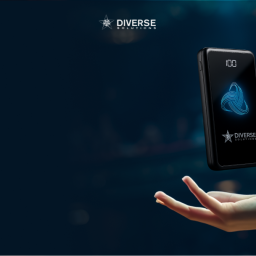
Giving corporate gifts can be a fantastic way to show appreciation and strengthen business relationships. However, when not done thoughtfully, it can backfire, leading to awkward situations or even damaging a professional relationship. Corporate gifts that miss the mark can send the wrong message, appear insincere, or worse—offend the recipient. In this blog post, we’ll explore the potential pitfalls of poorly chosen gifts, real-life examples of gifts that backfired, and tips on what you should avoid. By the end, you’ll have a better understanding of how to choose gifts that leave a positive impression on your clients.
Potential Pitfalls of Poorly Chosen Gifts
A poorly chosen corporate gift can have unintended consequences. It might seem harmless, but a wrong choice can be viewed as inconsiderate, offensive, or even unprofessional. According to a study published in the Journal of Business Ethics (2020), nearly 45% of professionals have felt uncomfortable or offended by corporate gifts they received, showing that this issue is more common than expected. There are several reasons why corporate gifts may not land as intended:
- Cultural insensitivity: Ignoring cultural differences or failing to research appropriate gifts for clients from diverse backgrounds can lead to misunderstandings.
- Perceived inauthenticity: Generic or low-effort gifts may appear as a lack of thoughtfulness, leaving clients feeling undervalued.
- Over-personalization: Personalized gifts that miss the mark or reveal private information can be intrusive or embarrassing.
To ensure your gifts don’t backfire, it’s essential to understand what can go wrong and how to avoid these situations. Below, we’ll discuss some specific examples of gifts that have backfired and why.
Gifts That Backfired That You Should Avoid

Offensive gifts
Gifts that unintentionally offend the recipient can cause embarrassment or worse—strain your business relationship. These could include items with controversial messages, political symbols, or anything that touches on sensitive topics like religion or race.
Example:
A tech company once gifted their clients a calendar featuring scantily clad models as a “fun” gift. While intended to be lighthearted, it was received poorly, especially among female clients, who found it inappropriate and disrespectful. The company had to issue an apology, but the damage to their image had already been done.
Impractical gifts
Gifts that have no real use or seem impractical for a professional setting can make clients feel like you haven’t considered their needs. This might include extravagant but useless gadgets, overly luxurious items, or things that clients would never use.
Example:
A financial firm sent its clients gold-plated cufflinks, assuming it would show sophistication. However, many recipients did not wear cufflinks, making the gift impractical and disconnected from the clients’ actual lifestyles. Instead of impressing, it came across as wasteful and disconnected.
Low-quality gifts
Low-quality or cheap-looking gifts can send the wrong message, making clients feel undervalued. Such gifts suggest that the company did not put much thought or investment into selecting the gift, undermining its intention.
Example:
A company once sent out pens with their logo as a holiday gift. Unfortunately, the pens were of such low quality that many recipients reported them breaking after a few uses. The poor quality reflected badly on the company’s image, as clients associated the cheap pens with the brand’s level of service.
Tasteless gifts
Gifts that lack sophistication or taste can leave a bad impression. For example, humor is subjective; what one person finds funny, another might find offensive.
Example:
An advertising agency gave out T-shirts with a bold, humorous message, believing it would showcase their creativity. However, some clients found the humor inappropriate, and it ended up being a talking point for all the wrong reasons.
Personalized gifts that miss the mark
Personalizing gifts can be a great way to make clients feel special, but it’s important to be mindful of the information you use. Gifts that are overly personal, or that reflect incorrect or outdated information, can be awkward.
Example:
A consulting firm once sent personalized mugs to their clients with their names and a motivational quote. However, some names were misspelled, and others were based on incorrect information. This left clients feeling unimportant, as it showed a lack of attention to detail.

Case Studies
The timepiece fiasco
A prominent law firm once sent luxury watches to its top clients as a show of appreciation. However, they didn’t realize that one of their clients had a strict no-gift policy due to company regulations. This led to an uncomfortable situation where the client had to return the gift, making both parties uneasy. The lesson here is to always check company policies before sending high-value gifts. Not every client can accept expensive items, and assuming otherwise can lead to embarrassment for both parties.
The diet food disaster
A wellness company thought it would be thoughtful to send diet-friendly snacks to their clients, promoting a healthy lifestyle. Unfortunately, some clients felt insulted, interpreting the gift as a comment on their weight or health. This misstep not only offended some recipients but also led to negative reviews online, hurting the company’s reputation. This example illustrates how even well-intentioned gifts can backfire if they touch on personal topics like diet or health. It’s best to avoid gifts that can be perceived as personal judgments.
Final Thoughts
Choosing the right corporate gift can be tricky, but understanding what not to give can make the process much easier. Avoid offensive, impractical, low-quality, tasteless, or overly personal gifts that miss the mark. Instead, focus on thoughtful, neutral, and high-quality items that show genuine appreciation without crossing boundaries. Always consider your client’s preferences, culture, and professional policies before selecting a gift. A well-researched and thoughtful gift can strengthen your business relationships, while a poorly chosen one can do the opposite. When in doubt, keep it simple and tasteful.
FAQs
Neutral gifts like high-quality stationery, gourmet food baskets, or elegant desk accessories are safe options that are unlikely to offend or cause discomfort.
Personalization can add a special touch, but it’s crucial to ensure the information used is accurate and appropriate. A simple monogram or the inclusion of a company logo can make a gift feel personalized without being intrusive.
Research your client’s background, culture, and company policies before selecting a gift. If you are unsure, opt for safe, neutral items that won’t be misinterpreted.
Yes, expensive gifts can backfire if they violate company policies or create discomfort due to their value. Always check if clients can accept such gifts before sending them.
For more insights on corporate gifting strategies and to explore a wide range of customizable eco-friendly options, visit Diverse Solutions.
















